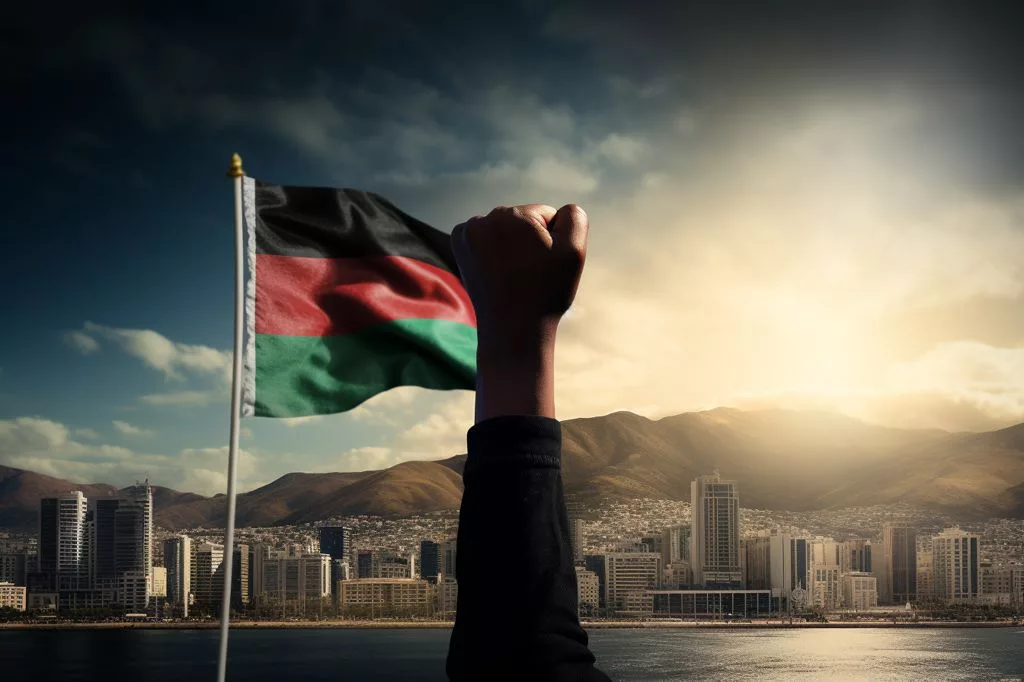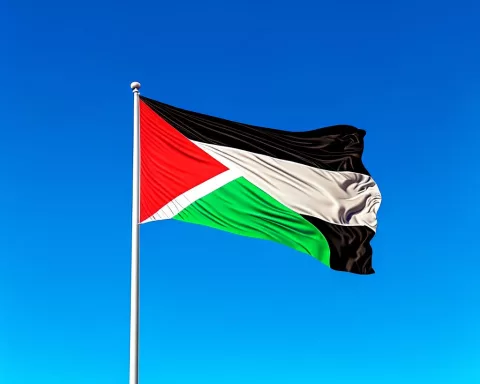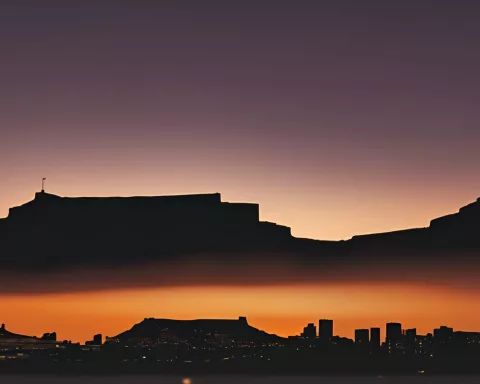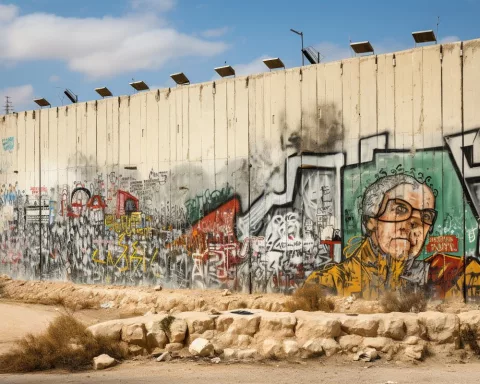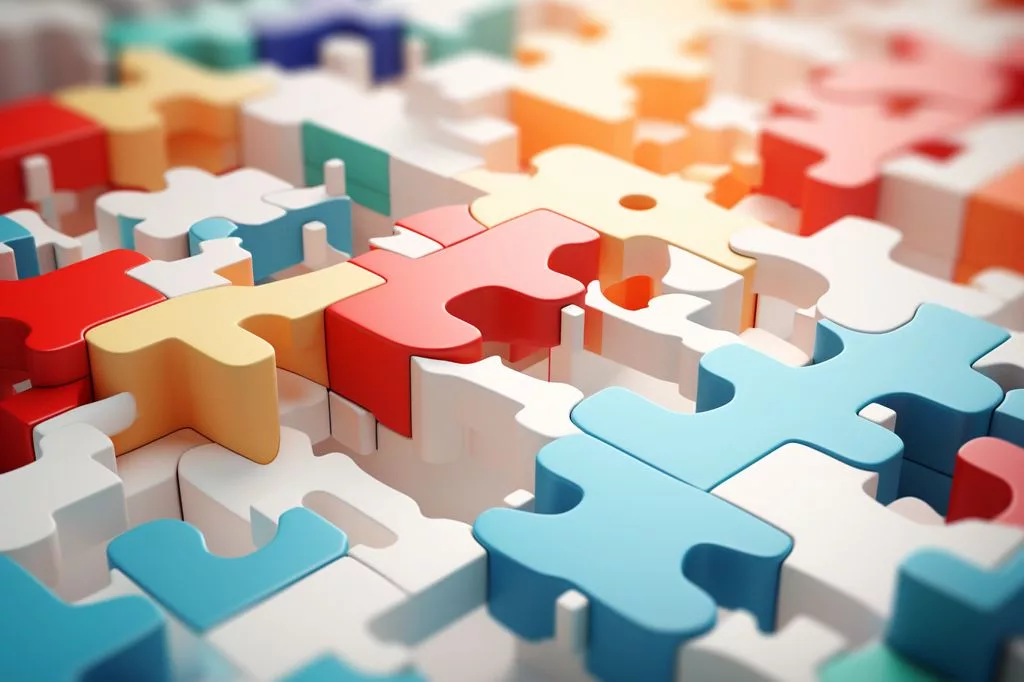Thousands of people marched through the streets of Salt River in Cape Town to show their support for the Palestinian cause. The rally was organized by the Palestine Solidarity Campaign and the Salt River Heritage Society and included chants of “free Palestine” and “stop the genocide, stop the hate.” Reverend Allan Boesak urged the South African government to cut ties with Israel, while organizers pledged to reconvene on October 28 to evaluate the government’s response to their requests for an immediate ceasefire, increased humanitarian aid for Gaza, and the closure of the Israeli embassy.
What was the Cape Town rally for Palestine about?
The Cape Town rally was organized by the Palestine Solidarity Campaign and the Salt River Heritage Society to show support for the Palestinian cause. Thousands of individuals marched through the streets of Salt River, brandishing flags and signs, and chanting “free Palestine” and “stop the genocide, stop the hate.” The demonstrators’ main requests included closing the Israeli embassy, an immediate ceasefire, and increased humanitarian aid for Gaza. Reverend Allan Boesak delivered a speech, urging the South African government to cut ties with Israel.
Cape Town’s Rally for Palestine
The vibrant streets of Salt River in Cape Town, South Africa, were filled with the fervor and determination of thousands of individuals who assembled on Sunday to show their steadfast support for the Palestinian cause. The march was arranged by the Palestine Solidarity Campaign and the Salt River Heritage Society and was one of several pro-Palestine protests occurring worldwide this past weekend.
A spirited crowd, brandishing flags and signs, embarked on a march from Albert Road to a sports field near the Blackpool community hall. A lively rally took place there, where impassioned chants of “free Palestine” and “stop the genocide, stop the hate” echoed in the atmosphere. The demonstrators’ main requests included closing the Israeli embassy, an immediate ceasefire, and increased humanitarian aid for Gaza.
Reverend Allan Boesak delivered a thought-provoking speech, urging the South African government to cut ties with Israel. Boesak’s words illuminated the suffering and helplessness of the Palestinian people, stating, “Palestinians can do nothing while their children die.” He also criticized the United States for its contradictory approach to the conflict, mentioning President Joe Biden’s visit to Israel and the subsequent billions of dollars in aid to support the war.
Signs of Change and Solidarity
However, Boesak suggested that the tide may be turning, referring to a London march that attracted over 100,000 attendees and a group of American Jewish protesters who occupied the US Congress last week, demanding a ceasefire. “It means to me that [Israeli] propaganda is no longer working,” he concluded.
Judy Favish, a spokesperson for South African Jews for Free Palestine (SAJFP), underlined the necessity for the South African government to move from words to actions. Favish also emphasized the universality of solidarity with Palestinians, insisting that it is not exclusively a Muslim issue but a matter for humanity as a whole. She poignantly invoked the phrase “Never again,” used in the context of the Holocaust, to underscore the significance of preventing such atrocities from occurring to any group, including Palestinians.
The organizers of the Cape Town march pledged to reconvene on October 28 to evaluate the government’s reaction to their requests. This event is just one of numerous marches and demonstrations that have occurred in the city over the past few weeks, reflecting an expanding global awareness of the Palestinian plight.
Devastation and the Hope for Peace
The recent conflict in the region has resulted in devastation, with about 1,400 people killed in Israel after Hamas militants entered the country on October 7. In response to the violence, Israel ceased providing food supplies, water, and electricity to Gaza. The Israeli Defence Force’s bombardment of the area has caused the deaths of over 4,000 Palestinians, including many women and children. Tragically, more than 20 journalists and several United Nations workers have also perished in the conflict.
In summary, the Salt River march in Cape Town is a formidable demonstration of humanity uniting to express solidarity with the Palestinian cause. It is a testimony to the unshakeable belief that change is achievable and that the global community will not remain passive as innocent lives are taken. As the movement expands, the hope for a peaceful resolution, justice, and a better future for the Palestinian people stays strong and unyielding.
What were the main requests of the Cape Town rally for Palestine?
The demonstrators at the Cape Town rally for Palestine demanded an immediate ceasefire, increased humanitarian aid for Gaza, and the closure of the Israeli embassy.
Who organized the Cape Town rally for Palestine?
The Palestine Solidarity Campaign and the Salt River Heritage Society organized the Cape Town rally for Palestine.
What did Reverend Allan Boesak say at the Cape Town rally for Palestine?
Reverend Allan Boesak delivered a speech at the Cape Town rally for Palestine, urging the South African government to cut ties with Israel. He also criticized the United States for its contradictory approach to the conflict.
Why did the Cape Town rally for Palestine take place?
The Cape Town rally for Palestine took place to show support for the Palestinian cause and demand an immediate ceasefire, increased humanitarian aid for Gaza, and the closure of the Israeli embassy.
What was the reaction to the Cape Town rally for Palestine?
The organizers of the Cape Town rally for Palestine pledged to reconvene on October 28 to evaluate the government’s response to their requests. This event is one of several pro-Palestine protests occurring worldwide.
What is the significance of solidarity with Palestinians?
Judy Favish, a spokesperson for South African Jews for Free Palestine, emphasized the universality of solidarity with Palestinians, insisting that it is not exclusively a Muslim issue but a matter for humanity as a whole. She invoked the phrase “Never again” to underscore the importance of preventing such atrocities from occurring to any group, including Palestinians.
What has been the impact of the recent conflict in the region?
The recent conflict in the region has resulted in devastating consequences, including the deaths of about 1,400 people in Israel and over 4,000 Palestinians, including many women and children. Israel ceased providing food supplies, water, and electricity to Gaza, and more than 20 journalists and several United Nations workers have also perished in the conflict.
What is the hope for the future of the Palestinian people?
As the movement for Palestinian justice and peace expands, the hope for a peaceful resolution, justice, and a better future for the Palestinian people remains strong and unyielding.

